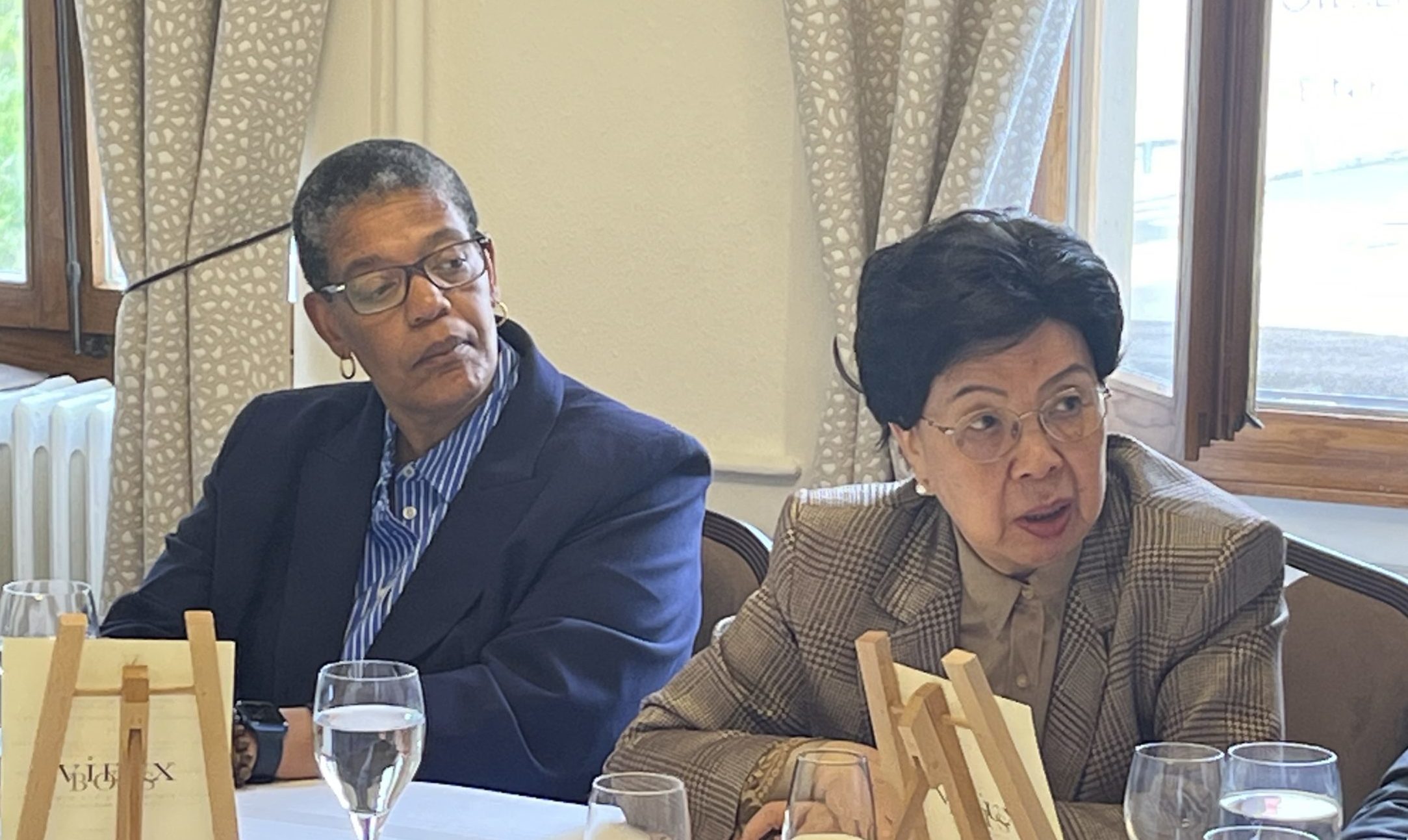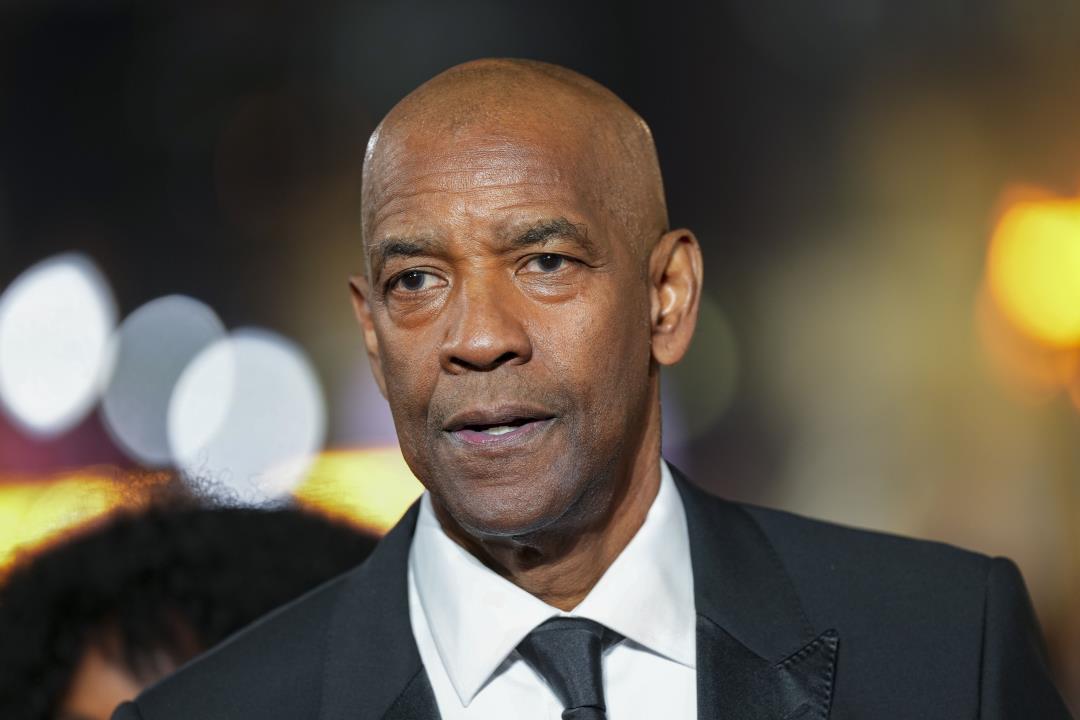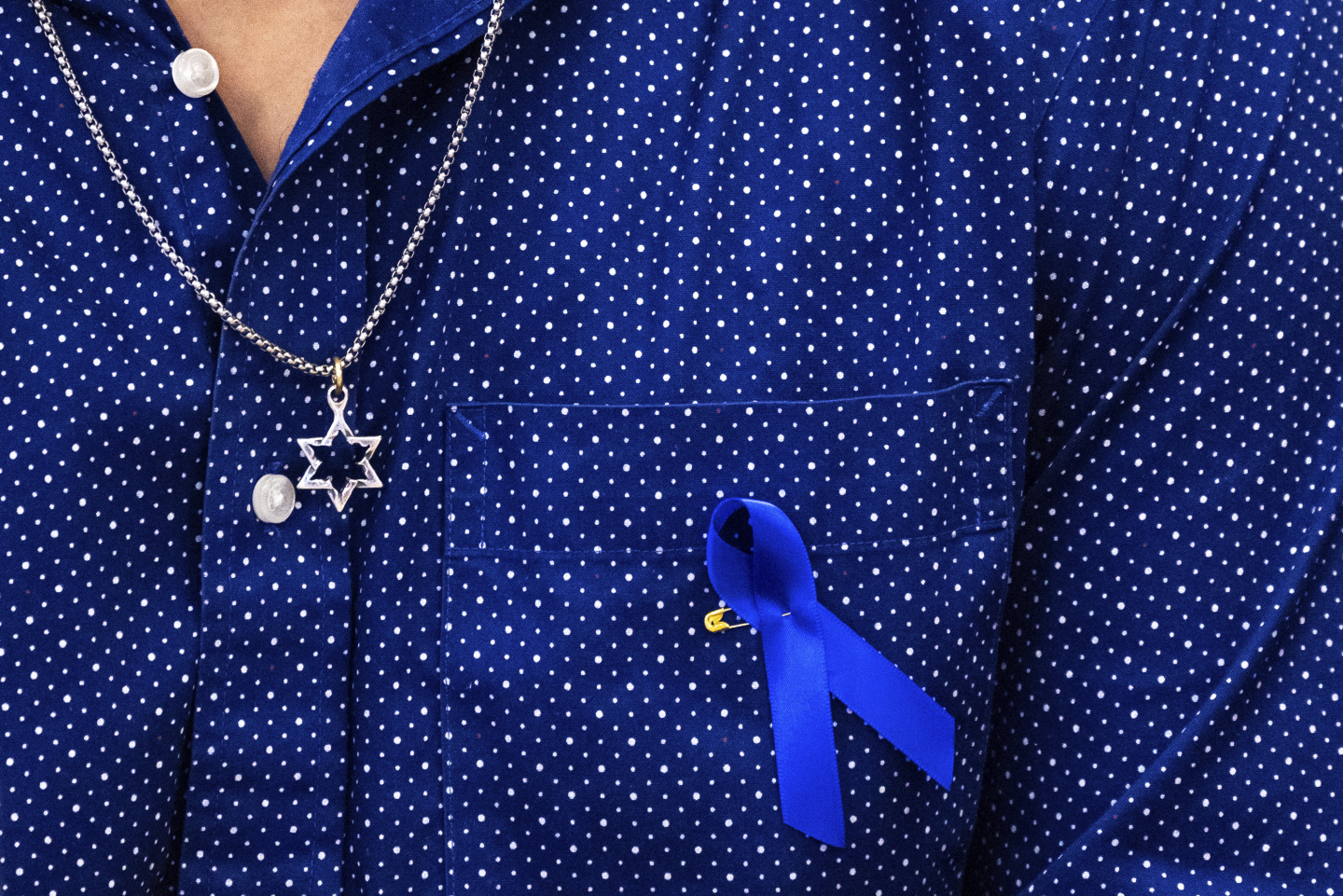
In April 2022, amidst the continuing uproar of the COVID pandemic, four deans of schools of public health from the USA, China, Switzerland and Singapore, first got on a call with each other to see how they could ramp up cooperation – remotely.
Barred by lockdowns from the usual academic meetings and conferences, the urge to link up was stronger than ever.
Co-founders of the high-powered group were Michelle Williams, then dean of Harvard’s School of Public Health, and former WHO Director General Margaret Chan, now dean of Beijing’s brand-new Vanke School of Public Health.
“At the height of the pandemic, my good friend here, Margaret and several others amongst us, decided that we needed to come together with deans of schools of public health, to promote solidarity, and to continue to be assertive about what global health diplomacy means for all of us,” said Williams at the first face-to-face Coalition meeting in May 2024.
“We were surprised at the lack of dialogue, the lack of cooperation and collaboration worldwide,” said Chan, of that difficult pandemic period. So, she was delighted when Williams reached out about a conferring virtually. “We felt that change is necessary, and we can make a contribution as universities – which represent the creation and translation of knowledge, through science, to policymaking.”
Other founding members included Antoine Flahault, director of the Zurich-based Swiss School of Public Health and long-time actor in Geneva, the world’s “global health hub”. And the deans of public health schools at the University of Cape Town; Mahidol University, Thailand. Heads of public health institutes in Huazhong, China, Mexico, Sydney, Chile and Singapore.
That first encounter, organized online by Chan at the Vanke School, was naturally focused on health issues related to the COVID crisis – but with an eye beyond the immediate issues of vaccines, travel restrictions and lockdowns to the long-term challenges that everyone knew lay ahead.
Challenges like the need for countries to come together on the all-important task of building more resilient health systems, better prepared for the next pandemic.
“Working with Dr. Margaret Chan to co-create the Coalition was one of the few bright spots during the early part of the pandemic,” Williams, who recently stepped down as dean, told Health Policy Watch by email from California, where she is currently on sabbatical.
“I was delighted that Margaret, and I joined forces and then had other deans join us. I felt it was important that we academic leaders needed to redouble our efforts to break down real and perceived barriers to global health collaboration, cooperation and diplomacy.
“All around us, in political and public health practice spaces, I observed decision makers looking inward and sometimes missing the important imperatives and values of global public health,” Williams said.
“Vaccine nationalism, unthoughtful border closings and some other policies ran counter to public health, global health diplomacy and practice. This was disheartening especially as pandemic threats, threats from climate change and other threats like antimicrobial resistance are global threats that require global cooperation.”
Indeed, while there are other established coalitions of Public Health Schools, mostly US-based, such as the American Association of Schools of Public Health, the World Federation of Schools of Public Health, and the Consortium of Universities for Global Health, one unique aspect of the GHF-based Coalition of Deans has been the way it links public health leaders, and not only the institutions, says Flahault.
“Our aim is not to duplicate, but to be complementary to all of these groups, with which we coordinate,” he said.
The loosely-knit group now includes about a dozen institutions, as well as the leading European and American associations or federations of Public Health universities and schools.
“Our vision is that this Global Coalition will allow us to learn more from each other, sharing our experiences, facilitating exchanges of students and faculty among schools and fostering joint research programs,” Flahault observed.
Adds Michel Kazatchkine, a physician, academic and former French diplomat, who also spoke at the group’s last meeting on the margins of the World Health Assembly:
“We’re now seeing an increasing interest in health diplomacy. But in this context, academia is particularly important because science is essential in evaluating the impact of policies and providing feedback analysis to politicians so that they can correct trajectories if needed.
“And academia provides the freedom to do research on any topic, even the most sensitive – to collect, analyze and speak about the findings of your data. So, we should not underestimate the role of academia as a fundamental pillar of knowledge-based, democratic societies.”
This year, after two years of remote meetings organized by the Vanke School and Harvard in succession, members of the coalition convened face-to-face, for the first time in Geneva, on the margins of the World Health Assembly, hosted by the Geneva Health Forum and the University of Geneva.
The group focused on planetary health as their principal topic.
“We shared experiences from Australia, China, and the USA about academic programmes dedicated to this issue – and asked the question: how do schools of public health integrate planetary health into their curriculum?” Flahault said. Doctoral and masters’ students from selected schools were also invited to speak along with faculty about lessons learned, he noted.
The discussions continued a thread from the 2023 remote meeting, which examined climate-driven food insecurity in the global health context – another cutting- edge issue that rarely gets much attention in classic public health school textbooks or classrooms.
“The Coalition of Deans have already been instrumental insofar as bringing attention to the importance of creating multi-national and interdisciplinary collaboration to bring multiple perspectives into designing curriculum,” reflected Williams.
“We’ve also provided a platform (as seen in the meeting hosted by Prof Flahault last spring) for showcasing junior faculty members and graduate students working in the fields of global planetary health and environmental justice,” Williams pointed out.
The effort is all the more topical insofar as Harvard’s Chan School of Public Health just launched a concentration in climate and planetary health in 2024.
In China, the Vanke School is also planning to pilot a planetary health course in 2025. That course will bring together students of public health with those in students from economics, urban design, environmental health sciences and engineering to examine multi-sectoral challenges and design solutions, said Chan, speaking with Health Policy Watch.
“Everyone knows about how John Snow stopped the cholera epidemic [by breaking the pump on a contaminated water cistern], but what about the sanitary engineer who helps to renovate and overhaul the London sewage system,” Chan said.
Tsinghua University, where the Vanke School is located, is world famous for its engineering school, she observes. “So. this will train future decision-makers to bridge between disciplines such as engineering and health.”
Along with partners in the WHO, the GHF and European Universities, Coalition members have also supported the development of a series of events on other interdisciplinary health topics over the past year.
These included a conference on Indoor Air Pollution, in September 2023 in Berne, as well as a recent Conference in Paris on Wastewater-based Epidemiology. See related story:
Post Pandemic: Wastewater-based Surveillance of Diseases Comes of Age
“Of course we have moved on from the pandemic to other topics,” noted Chan, speaking with Health Policy Watch recently in a phone interview. “The change in the conversation is a reflection of the changes in the current trends in Public Health. And it’s going to be more diverse as we move along.
One topic she’d like to see the Coalition tackle at some point would be the challenges of harnessing AI for good in the broad context of public health research and policymaking.
“There is a lot of talk about AI in clinical work, but what about AI in public health?” she asks. “Patient confidentiality is important. But we also need policies in place to enable the use of AI in research and outreach, but also to protect people’s privacy.”
Whatever the theme may be, the approach is the same, says Williams, who was instrumental in establishing a student exchange programme between Harvard and the Vanke School in 2021.
“Sharing of teaching materials and experiences related to launching new courses and concentrations are ways we can facilitate the spread of ideas across other universities.
“Developing and supporting annual workshops, and supporting student and faculty exchanges, are another. It is hoped that the Deans can secure resources to help operationalize these collaborative initiatives.”
Looking forward, Flahault says the group aims to maintain its informal modus operandi, to facilitate exchange across borders – and keep the focus on meaningful meetings and liaisons.
“We are a lean organization without any budget and staff and not competing with any other organizations,” Flahault said.
At the same time, he envisions the Coalition playing an advisory role in a soon-to-be-formed Think Tank that aims to continue dialogue and problem-solving around the themes of the Geneva Health Forum throughout the year. “One major fruit or byproduct of this will be the GHF Think Tank, which we are launching this spring, and will tap the academic network the Global Coalition assembles,” he said.
That, in addition to their annual meetings, on the margins of the Geneva Health Forum’s annual conference during the World Health Assembly – with the next event organized by Teo Yik-Ying, dean of the Saw Swee Hock School of Public Health at the National University of Singapore.
Now that face-to-face meetings are once more feasible, working from the Geneva axis offers a unique vantage point that can transcend some of the sharp geopolitical divides that academic leaders face in dialogues at other venues, Flahault also points out.
Says Chan, who served as WHO Director General from 2006-2017, “I’m very biased – to me, Geneva is the capital of public health. And all countries come to the World Health Assembly. So, it’s natural that all of us in the Coalition would meet here, to make our voices heard.”
Along with emerging global health issues around climate and planetary health – Flahault sees a future role for the group in reviving interest around some of the world’s longstanding, and unsolved public health challenges – such as elimination of polio, cholera and other preventable infectious diseases.
“Personally, I would love to see a WHA resolution against the three major diseases, polio malaria and cholera – with the same sense of determination we displaced against smallpox in the 1950s and 60s, with the same sharp formulation, we want to eradicate these diseases as soon as possible,” he said in a recent interview.
“All of the major actors would push and row together to make this successful. For polio it’s already done but we have to say we have to end the job.
“We need to be modest and realistic,” Flahault admitted. “Surely, eradicating cholera from the planet, which has already been the subject of one WHA resolution, needs a huge political commitment. This is not in the portfolio of the Global Coalition or schools of public health.
“But we could still play a role. With players in the media ..we could try to mobilize political leadership which is lacking today. We don’t have many political leaders embracing global health issues, as happened during the pandemic, but today global health issues remain a source of power for promoting multilateral commitments.
“And in the coalition, we have a great opportunity for liaison between China, the USA and Europe and all of the other constituencies that are in the room, which give us an opportunity to push public health as a form of ‘soft power’ to move forward agendas.
After all, we succeeded in the 20th century to eliminate smallpox at the height of the cold war between the USSR and the USA. It was not easy, but we succeeded thanks to a shared commitment to health.”
Image Credits: Vanke School of Public Health , Aaron Jenkins, Sydney School of Public Health, Geneva Health Forum, Paul Palmer/ WHO.
Combat the infodemic in health information and support health policy reporting from the global South. Our growing network of journalists in Africa, Asia, Geneva and New York connect the dots between regional realities and the big global debates, with evidence-based, open access news and analysis. To make a personal or organisational contribution click here on PayPal.
Do you really care about access and equity in global health? Your contributions are urgently needed to support our mission in open access global health journalism and our network of correspondents in Africa, Asia, New York and Geneva. Their reporting connects the dots between the regional realities and the big global debates. Every contribution – big or small – helps us sustain our reporting for the benefit of all.
Do you really care about access and equity in global health? Your contributions are urgently needed to support our mission in open access global health journalism and our network of correspondents in Africa, Asia, New York and Geneva. Their reporting connects the dots between the regional realities and the big global debates. Every contribution – big or small – helps us sustain our reporting for the benefit of all.
You must be logged in to post a comment.










